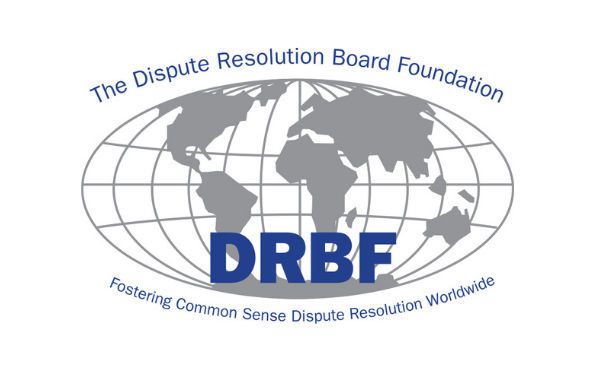DRBF 20th International Conference

Dispute Boards (DBs) are recognized as the best alternative method for preventing and resolving disputes and contributing to the success of projects. Example of the Grand Paris Express and real-time dispute resolution in public projects highlighted at DRBF International Conference
A Recovery and Resilience Plan (RRP) can only be achieved with better communication and dispute prevention and resolution methods. This is one of the ideas of the second day of the 20th International Conference of the Dispute Board Resolution Foundation (DRBF), an entity created to promote Dispute Boards (DBs), recognized as the best alternative method for preventing and resolving disputes in real time and contributing to the success of projects, which is being held at the Myriad Hotel in Lisbon.
Without litigation prevention, Portugal's already difficult ability to respond to the projects envisaged by the RRP will be impossible, since there is a lack of experience on the part of public bodies in large-scale and complex projects, in addition to the difficulties in applying good practices and recommendations in the construction of public works, such as the Lisbon and Porto metros or the expansion of the rail network.
An example of these adversities is adapting construction to real conditions, which implies greater flexibility in project management, flexibility that requires more rigorous preparation of projects, preparation that involves, among other things, the adoption of DBs.
DBs, recognized for their efficiency in preventing and resolving disputes in real time in major projects, are adopted all over the world by public, private and financing entities and accepted as "International Best Practice", contributing to the success of projects as reductions in cost and deadline deviations.
Another strong idea of the day at this DRBF conference - which is being held for the first time in Portugal - is the demand for greater investment in the project. Often not all phases of the project are completed, which means that not all objectives are met and there are significant errors and omissions.
The consequence is that the final quality of the work is compromised and there are future problems, for example with warranty periods. In the current situation of most large public works contracts, it is important to prevent disputes and, when they do occur, resolve them quickly and fairly, meeting deadlines and guaranteeing the technical quality of the solutions implemented and the success of the projects.
It implies the implementation of DBs, greater investment in the project and attention to the issue of contract values, since awarding the lowest bid entails subsequent costs.
An example of the implementation of DBs is the Grand Paris Express (GPE), Europe's largest construction project today. The GPE is a new rail and metro network adding 200km and 72 new stations to the current public transport system in Paris - one of the most congested cities in the world - which will run around the city center, connecting it to the suburbs and linking the suburbs of the French capital to each other.
Societé Grand Paris, the entity responsible for GPE, decided to implement DBs in this project, which currently has several active DBs and the prospect of using more. Experience shows that the results are better if both parties are willing to submit a dispute to a DB, as this gives them the chance to have a productive discussion.
A highlight of the conference on Friday morning, July 2, is a session on Avoiding and Resolving Disputes in Public Projects, with interventions from representatives of the Order of Engineers and the National Civil Engineering Laboratory.
In the afternoon there will be an opportunity to discuss DBs in Portugal, exploring the legal framework and possibilities of this mechanism for the success of both private and public procurement projects. At a time when the RRP is being outlined, the discussion and debate on the merits of DBs is more topical than ever.
DBs contribute to the success of projects through significant reductions in cost and time variances by monitoring a project from start to finish. The aim is to encourage the prevention and assist in the resolution of disputes throughout the development of the project and contribute to its success.
Studies have shown that 84% to 98% of the issues submitted to a DB do not proceed to arbitration or the courts. Owner studies show significant reductions in time and cost deviations compared to projects without DBs.
This conference is DRBF's flagship event worldwide, renowned for the exceptionality of the speakers and the quality of the program, and seeks to help parties stay above and beyond turbulent waters for the effective completion of projects.
All available information here.
About the Dispute Resolution Board Foundation (DRBF):
The Dispute Resolution Board Foundation (DRBF), a non-profit organization created in 1996, is an international association of Construction Industry professionals committed to the prevention and resolution of disputes in real time through the use of Dispute Boards (DB). Members, more than 1,000 in 70 countries, represent organizations of owners, architects, engineers, contractors, legal professionals, funding agencies and consultants. The DRBF offers resources for Owners and Contractors who wish to avoid and resolve their disputes using this successful and cost-effective method and organizes conferences and meetings as a forum for discussing developments in the process.

